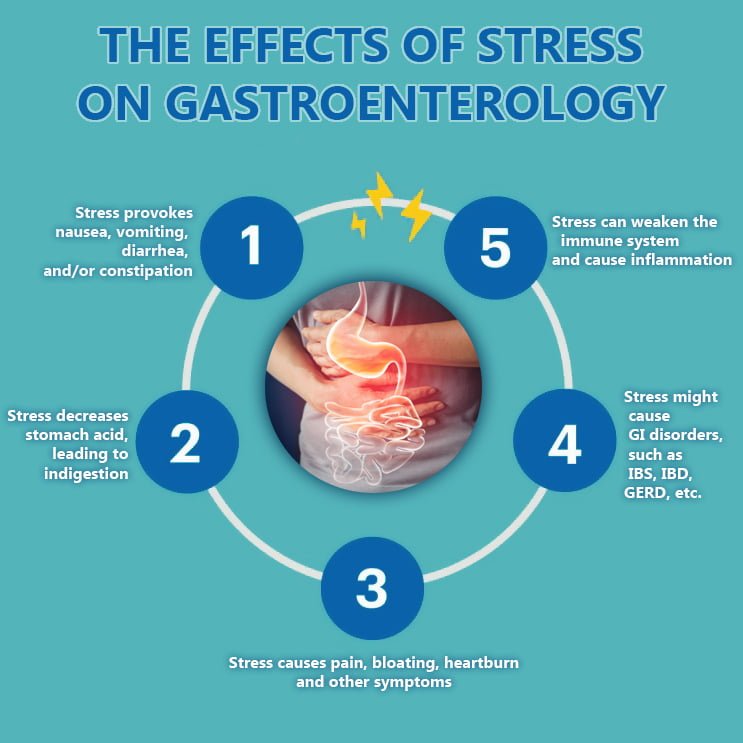Psychological stress — the mental or emotional anxiety caused by pressure from work, relationships, and other demanding circumstances — has physical consequences. If you regularly feel like you’re in a state of “flight or fight,” your body is going to rebel. The effects of stress worsen over time. If you don’t take steps to reduce stress, it can lead to a score of complications ranging from a reduced immune system to high blood pressure, weight loss, headaches, and yes, even gastrointestinal trouble.
Gastrointestinal Disorders from Stress

Functional disorders, common problems affecting the colon and rectum, also may occur when you’re under continual stress. These disorders, where your bowel looks normal but doesn’t work correctly, include constipation and irritable bowel syndrome.
Additionally, there seems to be a direct correlation between the amount of stress you experience and the severity of your symptoms. Most gastrointestinal disorders are painful, while some can become debilitating and chronic. Your symptoms may begin simply enough, perhaps with a slight change in the frequency or consistency of your bowel movements. Unless you relieve the stress, more severe conditions, like those listed above, can develop.
Reducing Stress
If you feel like you have too much stress in your life, it’s likely affecting your health. You can reduce stress. However, even if you don’t leave the situation (like your job), that’s causing it. Develop new habits and make time for yourself. You’ll improve your health at the same time:
- Exercise is one of the best ways to reduce stress. You don’t need to overdo it. Exercising as little as two or three times a week will improve your attitude, help you lose weight, and reduce stress. If you don’t exercise regularly for medical reasons, check with your gi doctor for healthy options. Even going for a daily walk will help.
- Health maintenance is essential while you’re working to reduce stress. Maintain a healthful diet that includes plenty of fiber, vitamins, protein, and fluids. Get sufficient sleep. Don’t smoke or abuse alcohol or drugs.
- Laughter is indeed good medicine when it comes to stress. Spend time with friends and family. Share the gift of laughter. Take up a hobby and watch comedies. Surround yourself with people you love and get out of the house to increase your sources of pleasure.
- Meditation is a relaxation technique that can help you overcome the effects of stress, like a decompression chamber. If meditation’s not for you, try deep breathing exercises or listening to soothing music. The goal is to give yourself some downtime so that you can clear your mind of troubling thoughts.

